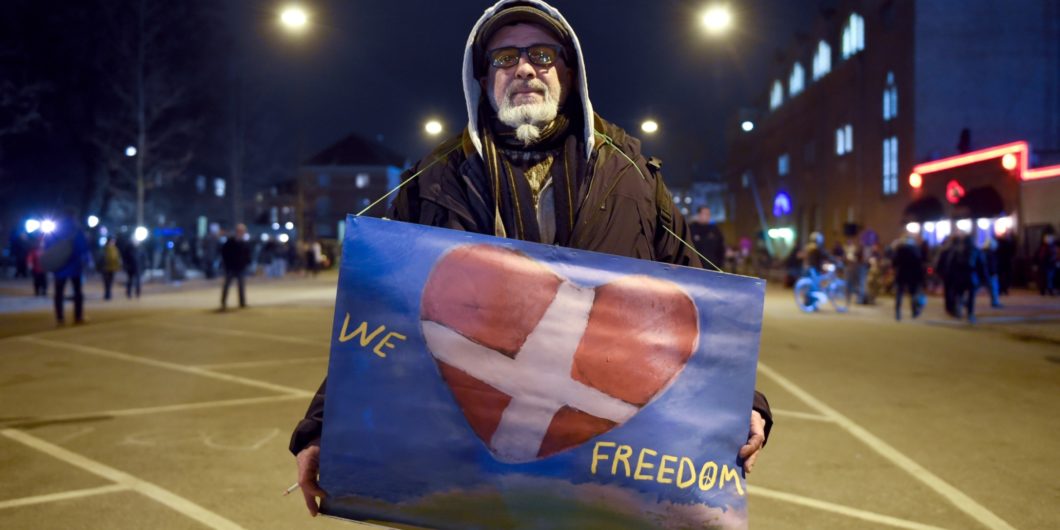Islam and Free Speech in Denmark
In 2005, the Danish newspaper Jyllands-Posten published a dozen cartoons of the Prophet Muhammad, not to denigrate Islam or to offend Muslims, but to initiate a debate about self-censorship and to assert free speech. Months later, there emerged an international crisis, as many Muslims called for censorship and some others reacted with violent riots and attacks, resulting in at least 200 deaths globally, the vast majority of which were in Nigeria.
Now, 15 years later, an opinion poll commissioned by the government-appointed free speech commission as part of its recently released report on the state of free speech in Denmark has shown that the underlying tension is still present in society. The poll shows the majority of Danish Muslims are still in favor of banning “criticism of Islam.” As many as 76 percent of immigrants and descendants from Muslim-majority countries, including Turkey, Lebanon, Pakistan, and Somalia (the four biggest immigration groups in Denmark with Muslim backgrounds), think it should be illegal to criticize Islam. Merely 18 percent of the Danish population aged 16 to 74 hold the same opinion. Immigrants from two non-Muslim-majority countries, Vietnam and Sri Lanka, have views more or less similar to the population at large.
In general, Danish Muslims are less supportive of freedom of expression as a fundamental value than the population in general when asked questions like “Should ordinary citizens have a right to say whatever they want if it offends other people? Or if it represents a threat to social cohesion? Or if it implicates a threat to national security?”
As two different individuals with different backgrounds, we both are concerned about this. One of us, Flemming Rose, is a non-believer whose views on individual freedom and the need to protect the right to dissent were informed by his work with dissidents in the Soviet Union; the other, Mustafa Akyol, is a believing Muslim who has written about Islam’s compatibility with liberal democracy. Both of us value freedom of speech. We also believe that it can be reconciled with the sincerely held beliefs of Muslims.
To that end, we would first like to remind the Danish people, and the broader Western society of a few points:
Those Muslims who devalue free speech may end up being their own worst enemy.
Throughout history, both of our religious traditions have found it difficult to tolerate criticism, dissent, and blasphemy. It was not too long ago when European Christians favored silencing the views they found heretical. In the 1970s and 1980s, a planned movie by the Danish artist and filmmaker Jens Jørgen Thorsen about the sex life of Jesus provoked demonstrations and sanctions. The Pope condemned the movie as “a crime against the Christian faith.” In Copenhagen, four thousand Christians demonstrated against the movie, and in Rome, Denmark’s embassy was fire-bombed with Molotov cocktails and a car was set on fire. In 1977, Thorsen was detained when he arrived at Heathrow international airport in London. The police told the movie director that he had been banned from entering Britain because his presence in the country threatened to disturb the public peace and cause demonstrations. Exactly the same thing happened to the Dutch politician Geert Wilders in 2009 when he was stopped at Heathrow on his way to the UK to show his film Fitna in the British parliament.
With time, Christians have become more tolerant and their attitude has changed for the better, but it didn’t happen overnight. If they changed, others can change as well. We would make two observations to encourage a similar change among Muslim attitudes.
First, there are fundamentally two ways of being religious: Either you believe in your faith because you have inherited it as sacred, never questioning it or allowing it to be criticized. The other way is that you question what you have received as sacred, you hear all the arguments against it, but you still end up as a believer—but a more mature and thoughtful believer.
Notably, classical Muslim scholars also distinguished between these two ways, as faith-based taqlid (imitation) versus tahqiq (verification). The latter, they also said, is more worthy.
In most traditional societies—including the original homelands of most Muslim immigrants—taqlid is the common way: you believe, because you hold things unquestionably sacred. In modern Western society, however, you can’t expect to find that uniformity. Here, everything can be freely discussed. So you need tahqiq in all sorts of ways. You need to rationally articulate your faith. You also need to be ready for challenging questions and criticisms—even if they come in forms that you are not used to, such as cartoons.
That is why Muslims should not silence questions and criticisms about Islam on thorny issues such as violence, freedom, or women. Such stifling of speech tends to backfire. Instead, they can see the criticisms as an opportunity to rethink Islam and to offer more mature interpretations of it.
Second, Muslim communities need to see a practical point: If they rely on “blasphemy” or “hate speech” laws to silence free speech, someone else may use these arguments against their own religion. They can say, for example, that the Qur’an’s strong condemnations of shirk, or “polytheism,” constitutes “hate speech” against other religions, threatening social harmony.
This is exactly how anti-Islam politicians such as Geert Wilders argue for banning the Qur’an or closing mosques. Their campaign against Islam represents a threat to the fundamental principle of equality before the law, and the best response is the principle of free speech. Therefore, those Muslims who devalue free speech may end up being their own worst enemy.
We all need freedom of speech—whether we are believers in Islam or its critics; whether we are on the right or the left side of politics. And at a moment in history when a new biological virus may catalyze all the usual political viruses—from xenophobic nationalism to religious fundamentalism—we need to preserve that core liberal value more than ever.



